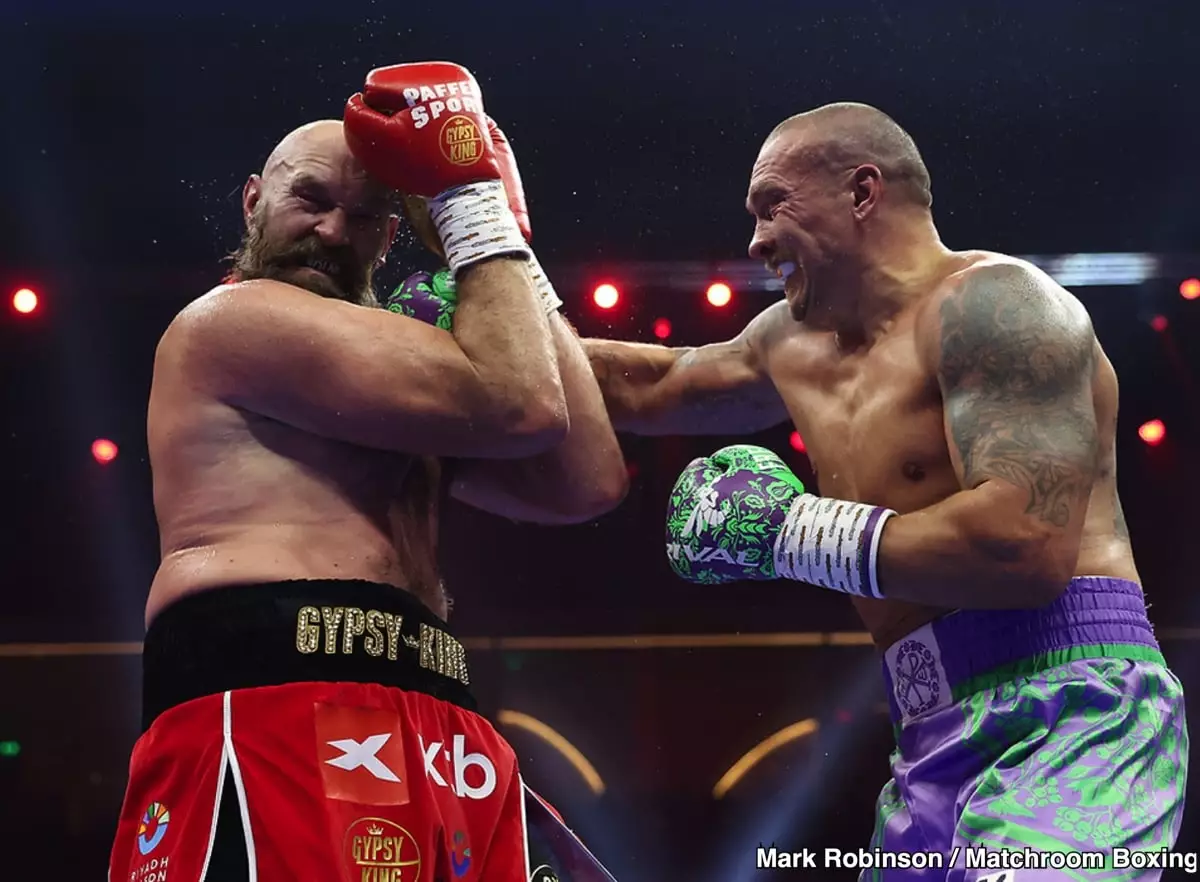In the aftermath of the Usyk vs. Fury rematch, the boxing community has exploded with commentary—some insightful, some absurd. The discourse surrounding this match appears cluttered, drawn by extreme interpretations and passionate yet misguided claims promoting personal biases over factual analysis. Many voices, it seems, are clamoring to stake their claims, but amidst this cacophony, it’s essential to sift through the noise and grasp the essence of what transpired in the ring.
Roberto Duran’s reflections following the fight present a grounded evaluation of Usyk’s performance. Duran emphasized Usyk’s commitment to his game plan, suggesting the Ukrainian boxer’s strategic approach was fundamental to his victory. Unlike the voices that dwell in hyperbole, Duran’s wisdom anchors the discussion: Usyk was methodical and executed his strategy almost flawlessly. The notion that he could have ended the bout early only stresses the confidence he had in his execution and perhaps hints at a conscious choice to play it safe against a powerful opponent.
Usyk’s initial victory over Fury indeed set the stage for the rematch. That fight was a tableau of skill, where Usyk’s speed and technical prowess shone brightly. Critics seeking to rewrite history are ignoring how Usyk outmaneuvered and outthought Fury, two traits often underestimated in favor of raw power. The fallout from that first match created a narrative driven by Fury’s legions of supporters who failed to accept defeat, opting instead to dwell in a land of hypotheticals, such as conjectures of corruption and bias from judges.
This tactic of revisionism leads to a skewed perception of what actually happened, overshadowing Usyk’s artistry. This misrepresentation alters the boxing landscape, and it’s crucial for fans—old and new—to recognize that the abilities exhibited by Usyk cannot simply be wished away by disgruntled fans claiming foul play.
Fast forward to the rematch, staged in Riyadh once again, and the bout was marked by a careful approach by both boxers—especially Fury, who tried to emphasize his physical size over Usyk’s intelligent boxing. Judging by the unanimous decision (116-112 across the board), the fight indicated a less controversial outcome. Overall, the bout lacked the excitement and unpredictability of their first encounter, often showing Usyk’s willingness to bide his time and pick off Fury with calculated strikes.
Fans and commentators alike felt a strange inevitability to the result. This should provoke a sense of liberation—a boxing match where intellect triumphed over brute force. Conclusively, if a boxing match is a dance of finesse and strategy, Usyk led while Fury attempted to follow. Despite treading on slippery ground, Fury fans declared an “injustice,” suggesting that their idol dominated an otherwise imagined narrative, reflecting a penchant for denial rather than the facts at hand.
As boxing enthusiasts reflect on the outcome, a psychological conundrum emerges: “What if?” Contemplations over Fury’s potential had become the focal point for some fans fixated on a time that never materialized. Instead of engaging with the reality presented in the ring, these discussions veer into a rabbit hole of speculative reasoning. Questions like “What if Fury had prepared differently?” overstep the boundaries of constructive analysis in favor of diversionary tactics.
It’s critical to understand that sports merit recognition for what occurred, not what might’ve happened under altered circumstances. Usyk, time and again, expanded his skillset beyond mere physicality, a trait some fans will find difficult to grapple with.
As Usyk enters a new chapter post-fight, discussions loom around his next steps. The possibility of retirement becomes enticing for the champion who has proven his mettle in the ring multiple times. Victory on home turf in Ukraine could provide a gracious exit, yet this doesn’t necessarily have to be an ending. His character and technical wisdom lend themselves to many narratives beyond the boxing spotlight.
Conversely, speculative fights, such as a potential showdown with Anthony Joshua or a rematch with Daniel Dubois, have devised plots that draw an audience yet feel fundamentally trivial amidst these two competitors’ histories with Usyk. Engaging in these spectacles might serve a purpose for entertainment, but they barely hold weight in the grand tale that is boxing’s evolution.
Boxing, much like any sport, thrives on realism. The mortal combat within the ring stands as a testament to preparation, fortitude, and intellectual capability. While fans may indulge in fantasy arguments over the outcomes, the standards of the sport demand that we embrace the truth these fighters reveal on fight night. Let’s hope that in the future, the fruits of skill, strategy, and heart take precedence over delusion and misrepresentation in the vibrant tapestry that defines boxing.

